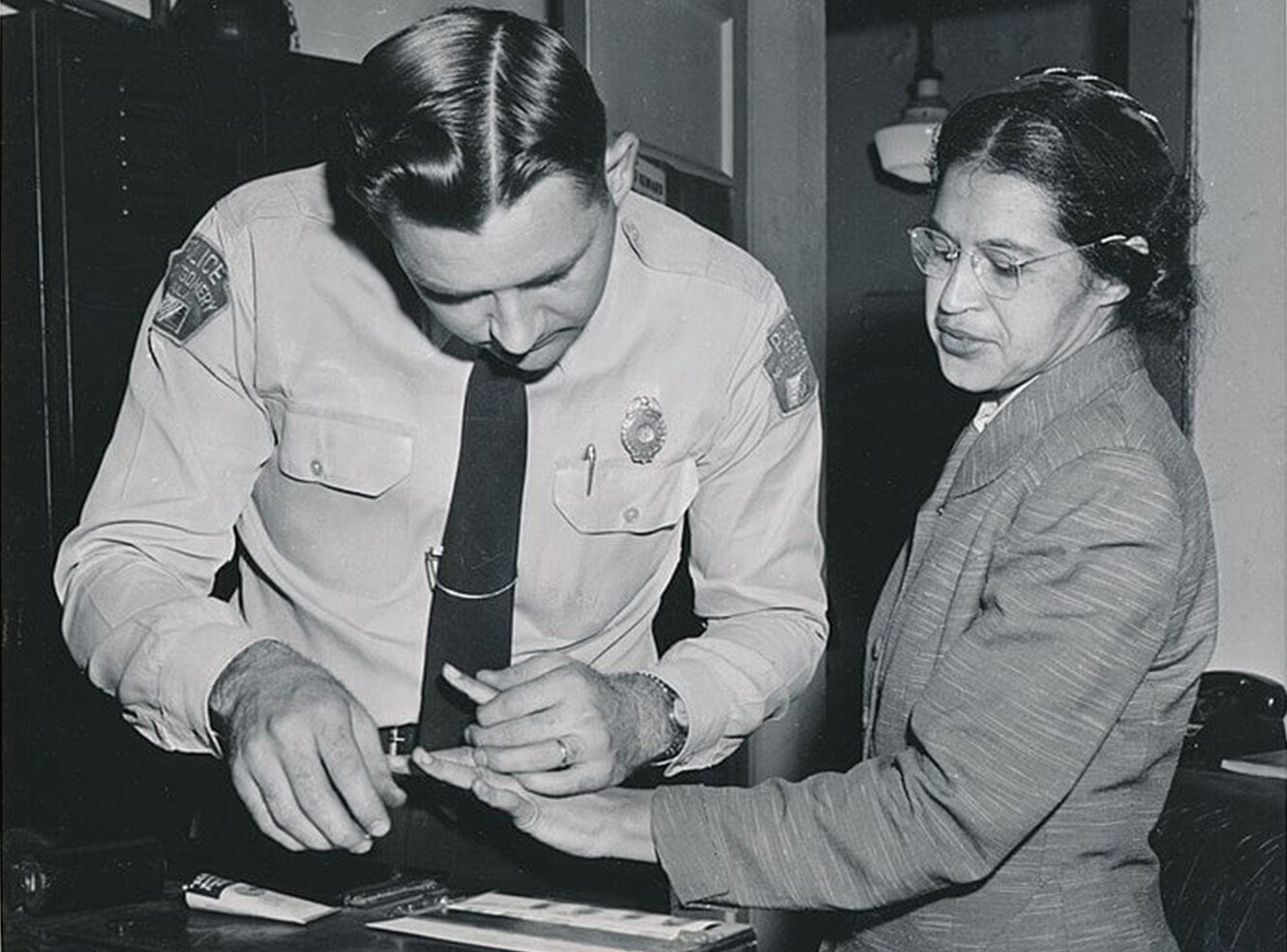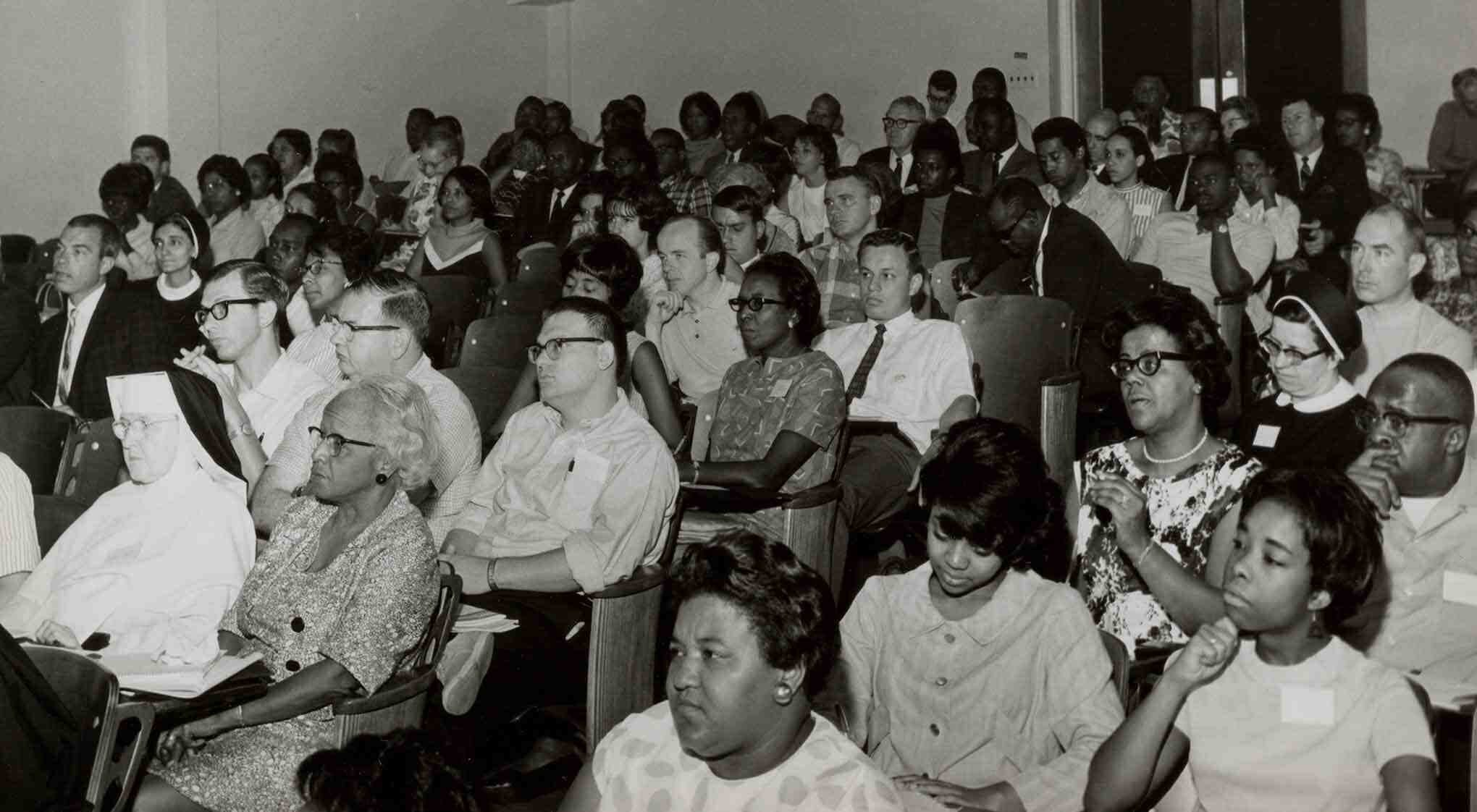Race Relations in America
Surveys and papers from The Amistad Research Center, 1943-1970
Discover a wealth of primary source material on the Civil Rights Movement, segregation, discrimination and racial theory in America during three pivotal decades of the twentieth century.
The Race Relations Department, based at Fisk University, was a highly influential think tank offering a forum for discussion and research on racial topics. The work of the department highlighted topics such as poverty and inequality, class, housing, employment, education and government policy. Its programme attracted many well-known figures in the Civil Rights Movement, including Thurgood Marshall, Martin Luther King Jr., Bayard Rustin, Charles Houston, and Marguerite Cartwright.
Highlights
- Over 100 hours of audio recordings of speeches given by prominent members of the Civil Rights Movement, eminent sociologists, economists, industrial experts and psychologists
- A wealth of survey material covering school desegregation, church integration, employment practices, housing and recreation
- Detailed case studies and community self-surveys on key cities across the US
- Campaigns against voter suppression in African American communities
- Photographs of the participants at the annual Race Relations Institute
- Scrapbooks for several of the annual Institutes, collating rosters, photographs, publicity material, media coverage and key speeches
This resource sheds light on the fascinating work of the department through the digitisation of extensive records from the department’s archives, now held at the Amistad Research Center in New Orleans.
Key data
Period covered
Source archive
- Amistad Research Center, New Orleans, LA
- Crime and police brutality
- Community protests and race riots
- Poverty and discrimination
- Voting rights
- Urban renewal and housing problems
- Health care and welfare programmes
- Migration from the south into northern cities
- Audio recordings
- Surveys
- Questionnaires
- Correspondence
- Reports
- Minutes
- Statistics and raw data
- Photographs
- MapsScrapbooks
- Periodicals
- Marybeth Gasman, Rutgers University
- John Giggie, University of Alabama
- Christopher Harter, Amistad Research Center, New Orleans
- Thomas Pettigrew, University of California, Santa Cruz
- Carmelita Pickett, University of Virginia
- Katrina M. Sanders, University of Iowa
- Communities, Peoples and Nations
- Ethnic and Indigenous Studies
- North American Studies
- Interactive map allowing users to browse the extensive survey material produced by the Race Relations Department
- Audio recordings of speeches and panel discussions featuring key members of the civil rights movement, including Martin Luther King, Jr. and Thurgood Marshall
- Contextual essays
- Thematic guides
- Interactive chronology
- Data association tool to explore the participation of the Race Relations Institute
Collection insights

What defines a city’s public spaces? Who designates them and who determines their uses? Robert Cassanello investigates nineteenth-century Jacksonville to demonstrate that such questions have been part of urban life for more than a century.

It was on December 1st 1955 that Rosa Parks refused to give up her seat on a public bus in Montgomery, Alabama. Her act of defiance sparked the Montgomery Bus Boycott, which is now regarded as the first large-scale demonstration against segregation in the US.

The Race Relations Department of the United Church Board for Homeland Ministries was created by the American Missionary Association Division in 1942. The forum's debate was far-reaching, from racial and ethnic relationships to economics, education, and more.
Reviews
Race Relations in America is a significant, well-curated, proprietary digital archive for scholars and students conducting research on civil rights.
- Author: D. Pan, University of Washington Libraries
- Publisher: CHOICE
Supporting material
Videos
ACRL/Choice Webinars: Creating The Race Relations in America Collection


